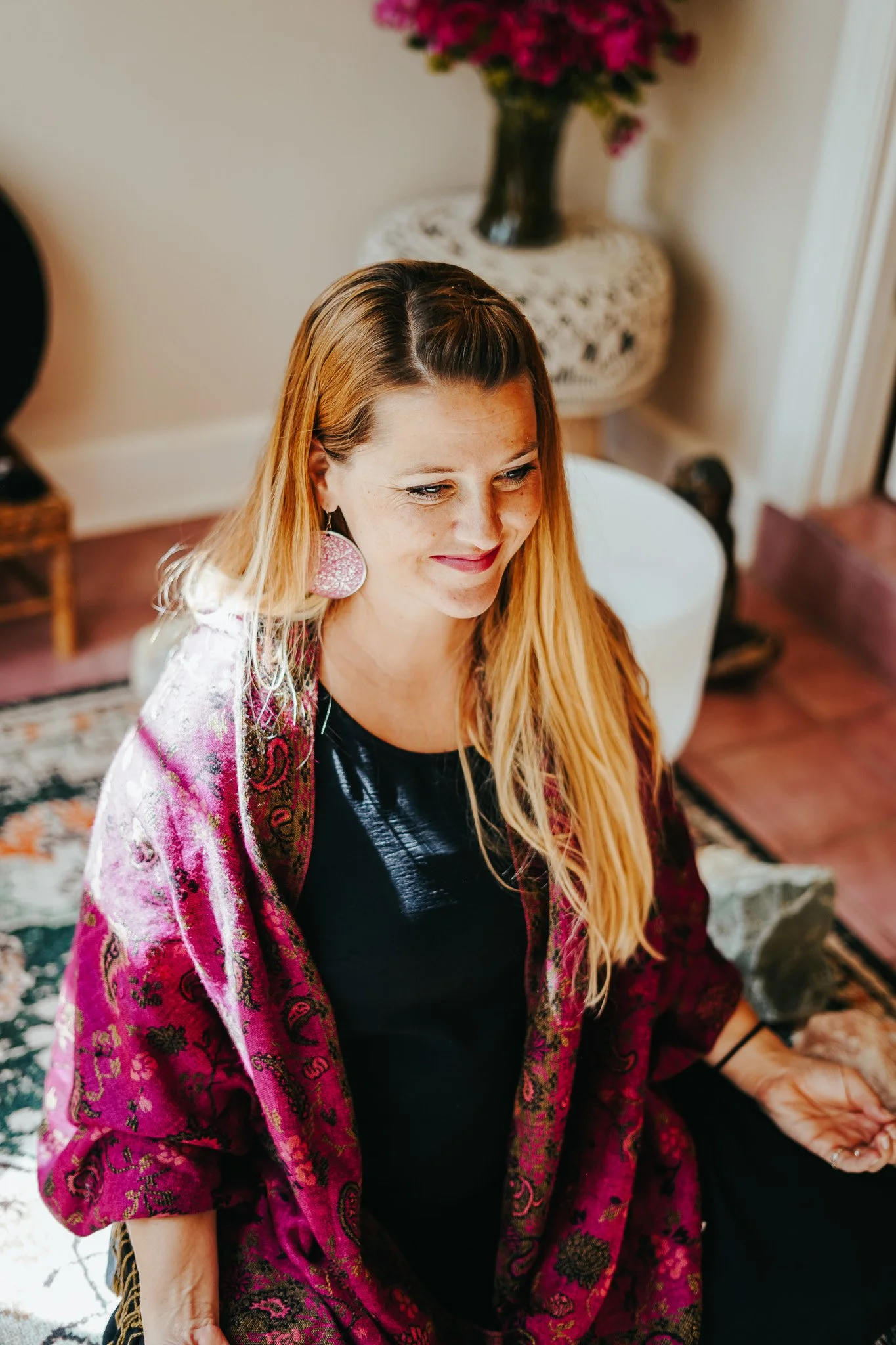Trauma Center Trauma Sensitive Yoga (TCTSY) is an embodiment practice that is empirically validated as a clinical intervention for complex trauma or chronic, treatment-resistant post-traumatic stress disorder (PTSD). In addition to its basis in Hatha style yoga, TCTSY has foundations in Trauma Theory, Attachment Theory, and Neuroscience. It creates a shared authentic experience focusing on the power lying with the participant, not the facilitator.
I offer this series as a facilitator, not someone who has authority - especially not over you and what you do with your body.
““For real change to take place, the body needs to learn that the danger has passed and to live in the reality of the present.”
“
BESSEL VAN DER KOLK, M.D.
The Body Keeps the Score”
Throughout this series, I will invite you to engage in physical movements and forms. No prior yoga experience is necessary (and there will definitely not be any Sanskrit language or fancy terms used).
This practice presents opportunities for participants to be in charge of themselves based on a felt sense of their own body. There is no emphasis on receiving approval from an external authority, rather, the focus in on the internal experience of the participant.
We will focus on choice making and a sense of agency, which is often compromised as a result of trauma. There will be some interoceptive cuing allowing regions of the brain and body to connect that had previously been impacted as a result of trauma - this is called interoception. Other themes include noticing rhythm and timing, awareness of breath, and present moment experiences.
Interoception
Clinically speaking, the primary aims of TCTSY are to restore interoception, agency and the capacity for effective inter and intra-relational action. Interoception refers to the process by which the nervous system senses, interprets, and integrates signals originating from within the body, providing a moment-by-moment mapping of the body’s internal landscape across conscious and unconscious levels. What this means, essentially, is that it provides us the ability to answer the question, “am I okay?”
This form of sensory processing is comprised of both the vestibular system and proprioceptive system and produces feelings of pain, exhaustion, hunger, thirst, temperature, itching and related sensations. It has been considered a component process contributing to the maintenance of homeostatic functioning, body regulation, and survival.
Dysfunction of interoception is increasingly recognized as present within different mental health conditions, including anxiety disorders, mood disorders, eating disorders, addictive disorders, and somatic symptom disorders. Research shows that attending a series of classes of TCTSY, participants increased the ability to feel safe within their own bodies. This is the result of a stronger connection to their own physicality, choice and control (or self-regulation).
TRAUMA-INFORMED YOGA PROMOTES
Present moment awareness
Shared authentic experience
Identification of physical and emotional feelings
Personal experimentation, choice, curiosity, and self-care
Coping skills to increase self-control, self-care, and self-regulation
Increase capacity for emotional and physical intimacy
Self-awareness and introspection, behavioral change, cognitive change, self-acceptance, and sense of connection with others
Trauma Sensitive Yoga is for
Complex trauma
Chronic, treatment resistant PTSD
Feeling empty, disconnectedness, or a sense of hopelessness in relationship to your body
Feelings of worthlessness
Feeling overwhelmed
Anxiety
Depression
Numbing or Freezing
Seemingly unexplainable body aches or pain
Disordered eating
Body image concerns
Loneliness
Tendency towards isolation
Survivor of abuse
Feeling like you’re crazy or something is wrong with you
What I’d like to say to you is, You are not alone.
Past traumatic life events can impact the parts of your brain that connect your mind and your body. This is a wonderful survival mechanism that works as trauma is occurring. However, once the trauma has passed, this can feel like a disempowering and scary way to live. TCTSY may be able to help bring those parts of your brain back online helping to relieve symptoms of trauma. I hope you can join!
How this online 5 part class works
Click on the registration link and fill out the form.
Enter your payment information. By purchasing this course you agree to my release of liability waiver.
Receive an email with login information.
Click on the TCTSY 5 Class Series Login page, enter your login information, and have access to all 5 videos!
About Gretchen
As someone who has experienced trauma, I have an understanding of how life can look and feel differently. I recognize that the body holds unrsolved unprocessed experiences and how important it is to bring the body into the healing process.
My life story includes being an elite level athlete and coach before beginning my most prominent healing journey. I went to Rishikesh, India in 2014 to begin studying yoga from the Eastern perspective. Upon returning from my immersion in India, I began studying trauma. The book that began this journey is by David Emerson called, “Overcoming Trauma through Yoga: Reclaiming Your Body.”
Enthralled, I traveled to Amsterdam Nethelands for my first training in TCTSY before applying and being accepted to the certification course. I have been a Trauma Center Trauma-Sensitive Yoga - Facilitator for five years and I have worked with individuals as well as groups for the past six years with the lens of transformation. I love sharing this practice.






